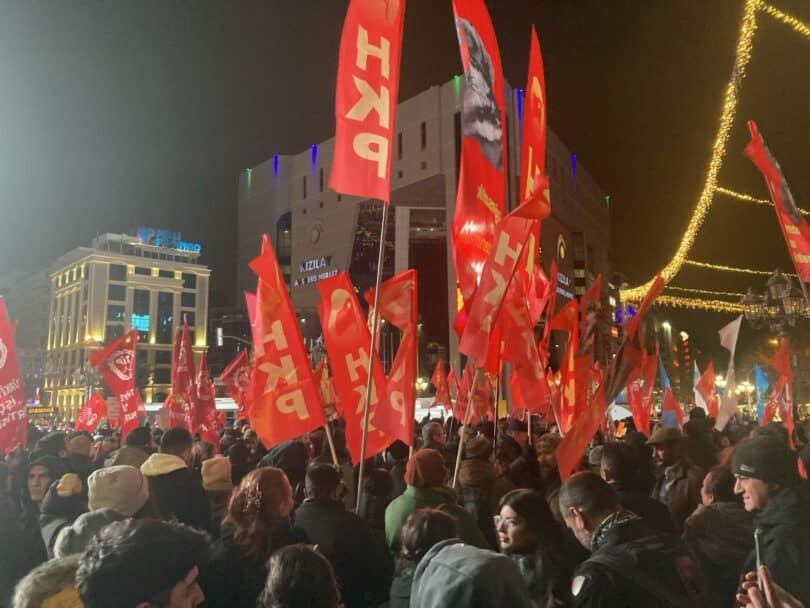by MEHMET OZBAGCI

On March 18, Ekrem Imamoglu, the mayor of Istanbul and the main opposition Republican People’s Party’s (CHP) presidential candidate, had his university diploma revoked. The decision was made by a committee at Istanbul University, where ?mamo?lu had graduated, with a majority vote. Under Turkish law, a university degree is required to run for president, so the decision effectively disqualified ?mamo?lu’s candidacy.
Many saw the ?mamo?lu as the only politician capable of defeating President Recep Tayyip Erdogan, who has ruled the country for 23 years. Imamoglu’s disqualification through such a crude maneuver sparked widespread anger among opposition supporters. However, in line with a longstanding tradition within Turkey’s opposition, Imamoglu himself chose to absorb this anger rather than mobilize it. He responded to the annulment of his diploma with a restrained video statement filmed at a Ramadan dinner. In the video, he emphasized the Islamic concept of “kul hakki” (right of the believer), and argued that the revocation of the diploma he obtained 33 years ago signaled a broader threat to private property and civil rights in Turkey. Imamoglu’s statement included neither a call to protest the decision nor a clear roadmap for how he intended to challenge it.
The cost of this restraint would be heavy. On the morning after the university’s decision, dozens of police vehicles were stationed in front of Imamoglu’s home. The mayor of Turkey’s most populous city was taken into custody. Around the same time, nearly 100 individuals, including journalists, opposition politicians, and municipal staff, were also detained, and Imamoglu’s construction company was seized by the government. The charges against him included leading a criminal organization, corruption, bribery, and money laundering. A few days later, on March 23, ?mamo?lu was officially arrested.
Imamoglu’s detention sparked large-scale protests, particularly on university campuses. In response, the government canceled police leave, suspended public transportation in major cities, and placed public squares under heavy police control. Twelve years after the nationwide Gezi Protests, Erdogan’s government and opposition groups were once again set to confront each other in the streets.
Timing the Takedown
In political trials, reality and fiction intertwine, and secret witness testimonies and questionable procedural practices are routinely employed. Since its early years, Erdo?an’s Justice and Development Party (AKP) government has used such trials as its primary tool for political retaliation. Therefore, while the sudden branding of the mayor of the country’s largest city as the leader of a criminal organization was shocking, it was not unexpected. The key question here is why the AKP government felt the need to use this tool at this particular moment.
The primary factor that drove the government to launch an operation against Imamoglu was, without a doubt, his political rise. In the March 2019 municipal elections, Imamoglu defeated AKP’s former prime minister, Binali Yildirim. However, the election was annulled on the grounds of alleged irregularities. When the vote was held again, Imamoglu won with an even larger margin, securing the Istanbul mayoralty. In the 2024 elections, he successfully retained his position, increasing his vote share.
Erdogan, who once served as Istanbul’s mayor himself, had famously stated that “Whoever wins Istanbul wins Turkey.” After winning Istanbul three times, and with the CHP emerging as the leading party in the 2024 local elections, it became increasingly clear that Imamoglu’s next target would be the presidency.
Monthly Review Online for more
